Dirasat (KFCRIS Papers)
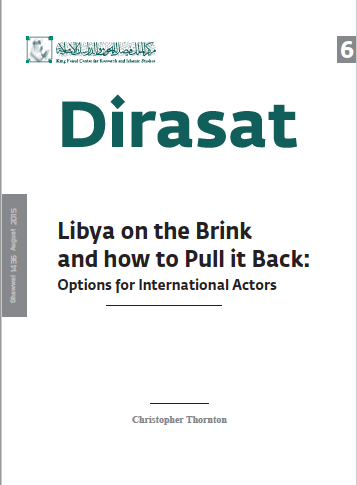
Number:
Author:
Libya on the Brink and How to Pull it Back: Options for International Actors
Christopher Thornton
Shawwal 1436 August 2015
Abstract:
The launch of Operation Dignity in May 2014 transformed Libya’s low-level military and political conflict into a full-blown war. The seizure of Tripoli and much of western Libya by the opposing Libya Dawn movement left the country divided in two with two parliaments, two governments, and two putative armies
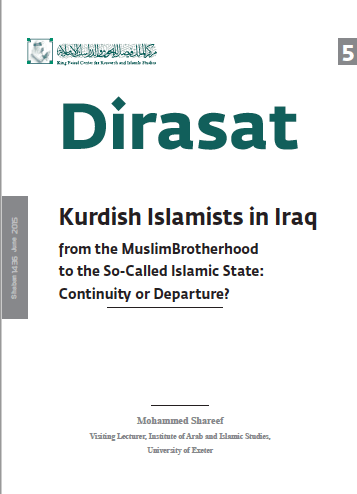
Number:
Author:
?Kurdish Islamists in Iraq, from the Muslim Brotherhood to the so-called “Islamic State:” Continuity or Departure
Mohammed Shareef
Issue 5 – Shaban 1436 June 2015
Abstract:
The major Islamist groups in the Kurdistan region of Iraq have long been part of the political landscape both at the subnational Kurdistan level and at the Iraqi national level. They gradually emerged in the late 1980s and became mo
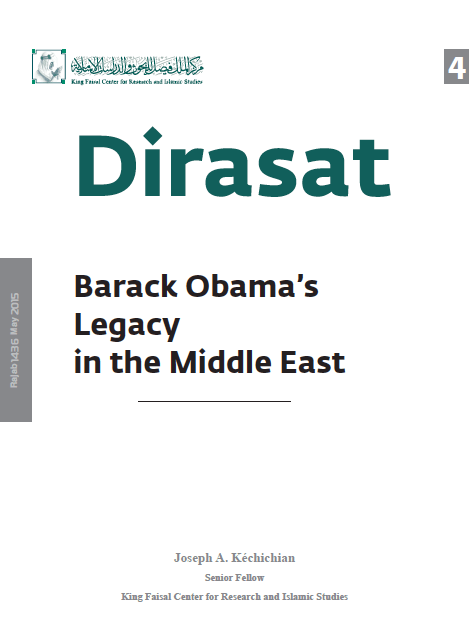
Number:
Author: Joseph A. Kéchichian
The Obama administration’s record in the Middle East from 2008 to the present included several failed opportunities, although what stood above all else was the lack of urgency to tackle the Arab-Israeli peace process, still the enduring concern that galvanizes Arab opinion. With little hope for any prospects for a revival in the aftermath of a public row between Mr. Obama and Israeli Prime Minister Benjamin Netanyahu, it seems that Obama opted to maintain a critical distance between his administration and perennial Middle Eastern concerns. Still, three specific issues are identified in this paper that, inter alia, highlight both existing challenges and fresh ones tha
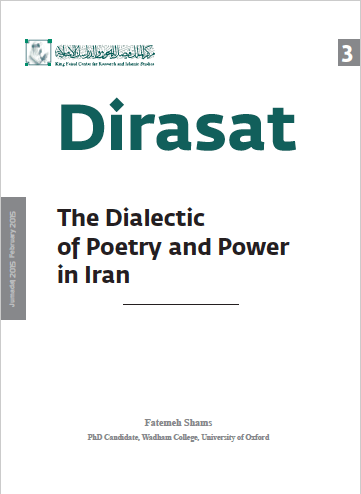
Number:
Author:
Fatemeh Shams
Issue 3 – Jumada’1 1436 H – February 2015
:Abstract
The present study tackles the question of the relationship between poetry and power in Iran in three periods, with a specific focus on the third one. The first period stretches from the rise of Persian court poetry in the medieval period to its demise in the wake of the constitutional movement (1905–11). The second reaches from the rise of constitutional and modern poetry to the emergence of pro-revolutionary poetry at the outset of the 1979 revolution. The third features the emergence of
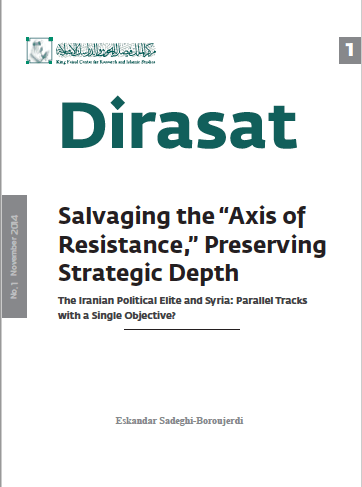
Number:
Author:
Salvaging the “Axis of Resistance,” Preserving Strategic Depth
?The Iranian Political Elite and Syria: Parallel Tracks with a Single Objective
Eskandar Sadeghi-Boroujerdi
Issue 1 – Muharram 1436 H – November 2014
